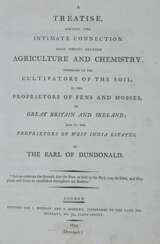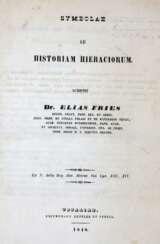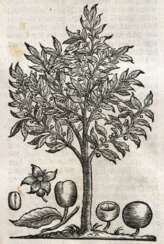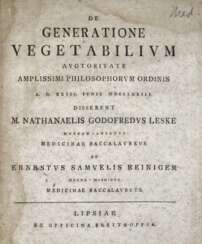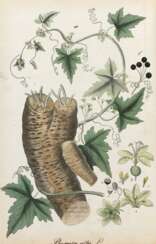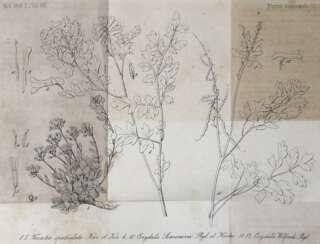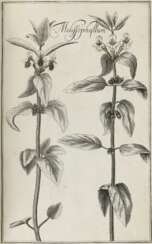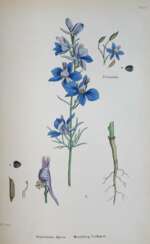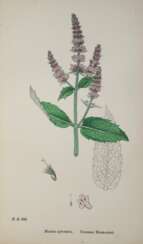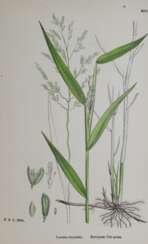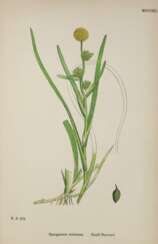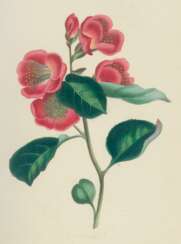
Botany — A129-1: Alte Drucke, Handschriften und Kunstwissenschaft
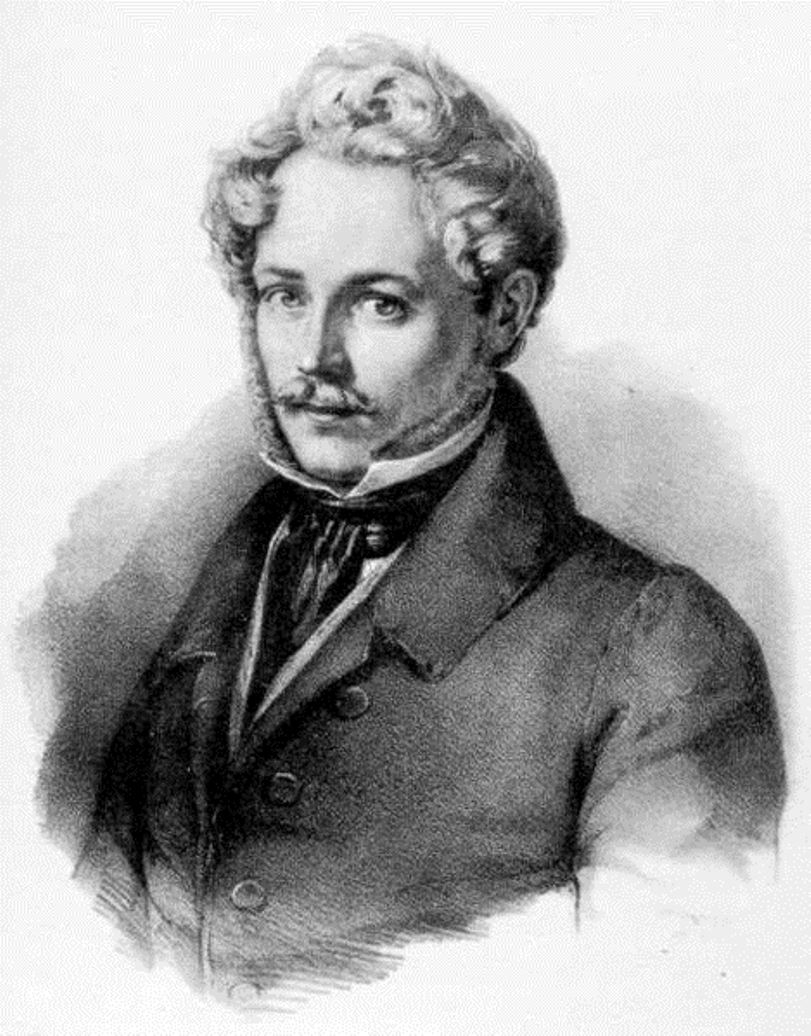
Ernst Fries, full name Adam Friedrich Carl Ernst Fries, was a German landscape painter, draftsman, engraver and etching artist.
Born into the wealthy and large family of banker and art collector Christian Adam Fries, Ernst received the best artistic education, including at the Academy of Fine Arts in Munich. Ernst Fries traveled extensively throughout Europe and always and everywhere made landscape sketches. In Italy he created his best works. Moving to Karlsruhe in 1831, Fries was appointed court painter to the Grand Duke. During his short tenure he painted a large number of leads, paintings and engravings.
Fries marked the transition from romanticism to realism with his work and had great potential, but unfortunately he ended his life at the age of 32. His younger brothers Wilhelm (1819-1878) and Bernhard (1820-1879) also became artists.
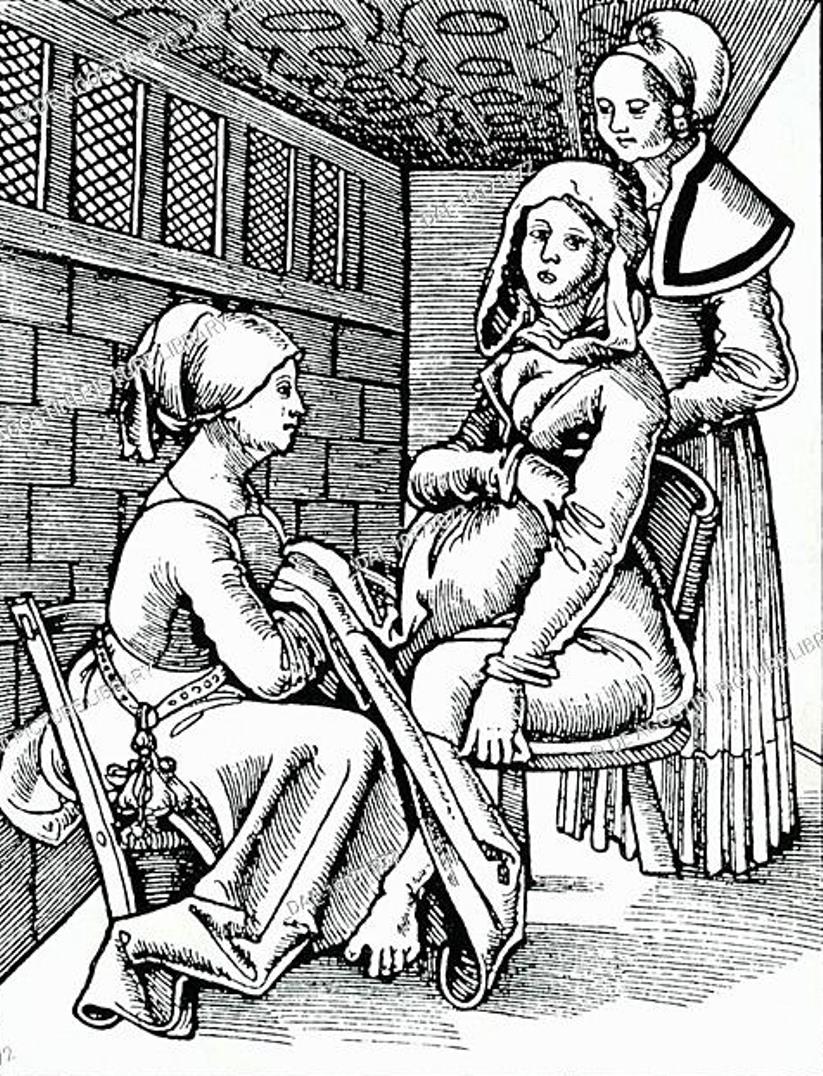
Eucharius Rösslin the Elder or Eucharius Rößlin was a German medieval scholar, physician-midwife, and pharmacist.
In 1493 Eucharius became apothecary in Freiburg, and 13 years later was elected physician of the city of Frankfurt am Main. From there he moved to Worms, in the service of Katherine, Princess of Saxony and Duchess of Brunswick and Lüneburg. One of his duties was to oversee and supervise the city's midwives, whose ignorance led to a high infant and female mortality rate.
In order to remedy this, Eucharius wrote and published a book on midwifery called Der Rosengarten ("The Rose Garden for Pregnant Women and Midwives") in Strasbourg in 1513. It was in German and contained several engravings. The book proved very popular and soon became the standard medical textbook for midwives. For nearly two centuries it was the authoritative guide to midwifery in Europe, translated into seven languages and reprinted over a hundred times.
In 1517 Rösslin returned to work in Frankfurt and remained in that position until his death in 1526. His son, also named Eucharius Rösslin, succeeded him as city physician.
